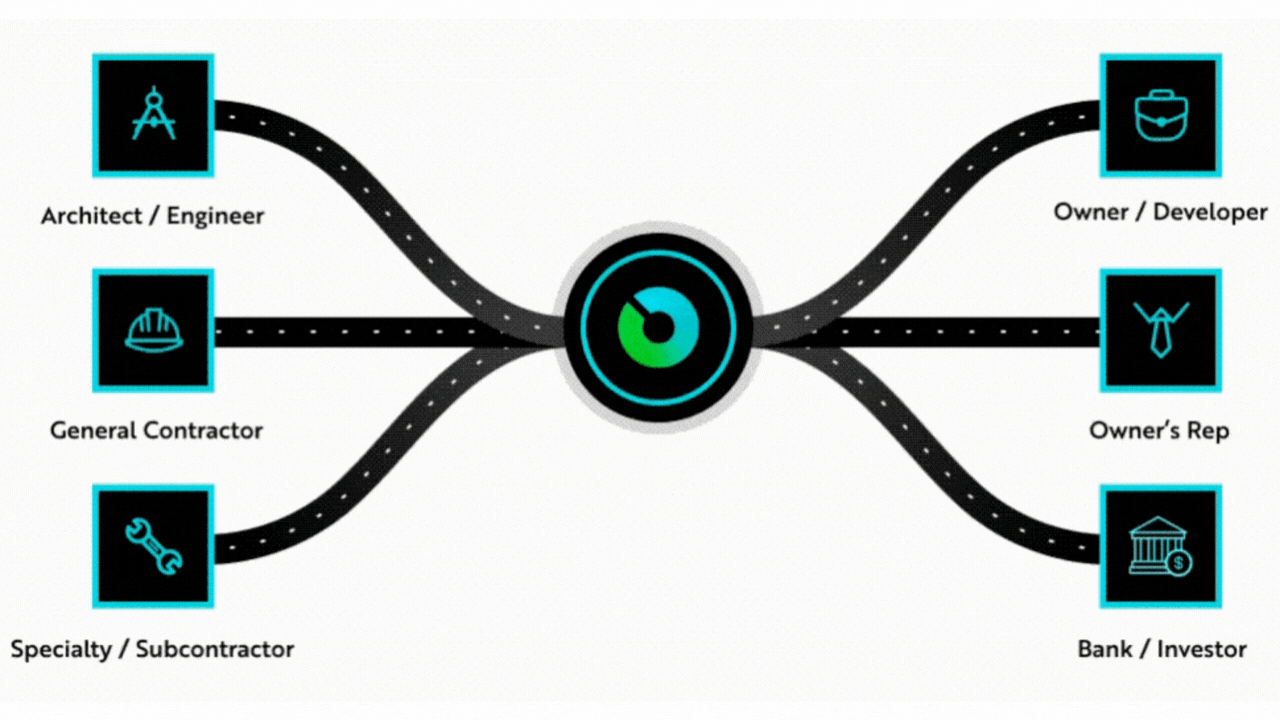The Most Powerful Paradoxes of Project Management
Improve your project leadership skills by studying these 9 paradoxes.
👋 Hey, Kyle here! Welcome to The Influential Project Manager, a weekly newsletter covering the essentials of successful project leadership.
Today’s Overview:
The world is not black and white. Many of life's most important truths appear contradictory on the surface.
A paradox is defined as a seemingly absurd or self-contradictory statement that, when investigated or explained, may prove to be true.
This piece shares 9 of the most powerful paradoxes you will find in project management.
Today’s Newsletter is Proudly Presented by INGENIOUS.BUILD!
The future operating system for Construction & Real Estate Dev is here! INGENIOUS.BUILD is an integrated, cloud-based application, organized into three distinct modules. The modules are designed to manage daily operations within project financials, project management, and construction administration.
Manage your development project and stay connected with all team members within the project in real-time, on an easy-to-use platform. Switch to INGENIOUS.BUILD and go from administrative project manager to strategic project leader!
The Most Powerful Paradoxes of Project Management
Filed under: Project Management
It's tempting to view the world as black and white. It's much safer and easier to assume that everything is static. That you live in a world that can be predicted with ease. That what you see is what you get.
Unfortunately, the world is much more complex than that.
In fact, many of life's most important truths appear contradictory on the surface.
A paradox is defined as a seemingly absurd or self-contradictory statement that, when investigated or explained, may prove to be true.
Over the years, I have compiled a list of paradoxes through my project work—the important truths that govern our projects and challenge our expectations for predictable outcomes.
Here are 9 of the most powerful paradoxes of project management...
1. The Certainty Paradox
As you progress in a project, your knowledge of it increases, yet your ability to influence it decreases.
Each project begins at a ‘low-point of certainty,’ where the most critical decisions are made with the least knowledge.
To overcome this, minimize early commitments while maximizing your knowledge through short, iterative planning cycles, simulations, and control measures.
Repetition rockets you up the learning curve, making each new iteration better, easier, cheaper, and faster.
2. The Speed Paradox
How do we a project done as quickly as possible? The obvious and most common answer is to get started right away and demand that everyone involved work at a furious pace.
But true speed comes from careful planning.
Speedy projects slow down to produce plans that are creative, rigorous, detailed, stable, and reliable - and highly likely to make delivery smooth and swift.
Abraham Lincoln said that if he had 6 hours to chop down a tree, he’d spend the first four sharpening the axe. This principle holds true for projects—great planning leads to swift and smooth delivery.
You have to slow down to speed up.
3. The Risk Paradox
It’s easy to assume that external surprises (scope changes, accidents, weather, new management etc.) cause project failures, but the real danger often lies within—our own biases.
In any big projects - people think, make judgments, and make decisions. And where there are thinking, judgement, and decisions, psychology is at play; for instance the optimism bias. Psychology and power drive projects at all scales.
The greatest threat you face isn’t out in the world, it is in your own head.
Which is why your biggest risk is YOU.
4. The Planning Paradox
We humans like to create plans that are unrealistic, and underestimate the costs and time needed to compete projects.
Plans are nothing, planning is everything. The value of a plan lies in the act and effort of planning.
Plans are the documentation of planning at one point in time. Planning is an active ongoing process of discussing the goals, strategies, and tasks that we need to accomplish.
Project success is rarely due to perfect plan; it’s the result of agility. Success happens when the team understands the overall purpose, communicates consistently, and is empowered to make informed decisions based on current circumstances.
The value is in the planning, not the plan.
5. The Productivity Paradox
Time is not a commodity; not all hours are equal.
“Everyone has the same 24 hours in a day,” you’ll hear people say.
It’s as if you could line up those hours like bushels of corn - each unit the same as the previous unit.
When you look at the 24 hours in a day, one unit of time is very different from another unit of time. Rhythms within our bodies and within the world around us make each hour different from the next.
Some hours are better for thinking analytically.
Some hours are better for thinking strategically.
Others are better for collaborating.
Things are not difficult to make; what is difficult is putting ourselves in the state of mind to make them.
Being productive today isn’t about filling out forms faster or packing as many meetings into your schedule as possible.
Productivity in project management means creating conditions conducive to effective and efficient work, not merely managing time.
Being productive today isn’t about time management, it’s about mind management.
6. The Efficiency Paradox
When projects fall behind, the instinct to accelerate by adding more resources and increasing overtime is natural, yet misguided.
Projects, like production systems, have bottlenecks; adding pressure will often aggravate these choke points rather than resolve them.
More resources means more training, complexity, and communication. More overtime means lower productivity and burnout.
True efficiency in projects isn’t about speeding up individual elements but maintaining a smooth, consistent flow throughout the entire process.
Stop pushing. Flow where you can, pull when you can’t.
7. The Low Bid Paradox
The lowest bid may cost you the highest price.
Choosing a project bid based solely on cost seems logical. But this can lead to greater expenses down the line. Low bids often come with hidden costs and compromised quality.
Focus on value, not just price, for long-term success.
8. The Leadership Paradox
True leadership involves following.
Commonly, leadership is perceived as a title that gives you the authority to assign tasks and command others.
But leadership is about having influence which is earned through humility, collaboration, and empowering others.
Titles do not make leaders—followers do.
9. The Delegation Paradox
The more control you give up, the more control you can gain.
Being a great leader is knowing when to take a step back. Leaders need to be able to assign tasks and projects to employees in order to focus on larger, more strategic moves.
If you want to go fast, go alone. If you want to go far, go together.
Final Takeaways
These paradoxes invite us to appreciate the dynamic complexities of project management.
By embracing these contradictions, we learn to navigate the chaos and lead successful projects with confidence.
What paradoxes have you encountered in your projects? What contradictions have shaped your understanding of effective project management?
Until next week,
Kyle Nitchen
LAST WORD 👋
How am I doing?
I love hearing from readers, and I’m always looking for feedback. How am I doing with The Influential Project Manager?
Is there anything you’d like to see more of or less of? Which aspects of the newsletter do you enjoy most?
Hit reply and say hello - I’d love to hear from you!

Before you go, here’s how I can help:
Upgrade your PM software. Project financials, management, and construction admin. Switch to INGENIOUS.BUILD to evolve from an administrative project manager to strategic project leader.
Get my full toolbox (free). It contains 30+ software and hardware tools I’m using today.
Hold your schedule accountable. Gain stability and flow in your projects with this Takt Planning & Control online course. Use code “Influentialpmtakt” for 30% off!
Advertise in this newsletter. Put your brand in front of 2,500+ construction project managers, leaders, and execs. (Booked out 5 weeks)
Support this Newsletter. The Influential Project Manager articles will remain free, but if you find this work valuable, I encourage you to become a paid subscriber. As a paid subscriber, you’ll help support this work.







I love this one: "your biggest risk is YOU." So true!
I often use this paradox. The best Project Manager is not visible, everybody just says we work so great together, everything is so smooth. All the work of the great PM. People only realize what the PM did when he/she stops doing it ...